On Friday, May 20th, the state of Oregon issued new rules which are designed to govern new psychedelics manufacturing processes, products, training programs, testing requirements, and more.
The rules are not yet final, and are expected to be considered in fall of 2022 for a launch in December.
The program will accept applications for new products and services in January 2 of 2023.
In this article, we'll aim to highlight some of the background of the initiative, how you can get involved, and some of the most notable elements of the rules themselves.
UPDATE: The OPS Training program, Licensing, and Compliance system (TLC) is a new online platform where training programs will apply for curriculum approval, complete a curriculum worksheet, and upload a copy of their detailed training program curriculum.
For more information, please go to theApply for Training Program Curriculum Approval webpage. The application will also be available to download and print. If you will need these written materials in other languages, braille, large print, or other formats, please contact us by calling (971)341-1713 or by emailingOHA.Psilocybin@dhsoha.state.or.us .
What is the Oregon Psilocybin Services Division?
The Oregon Psilocybin Services Section is a relatively new addition to the Oregon Health Authority (OHA). The Psilocybin Services Division was founded because of a public act received on July 2, 2019 and appeared on the ballot as Measure 109 in the 2020 election. It was passed.
Measure 109 directed the Oregon Health Authority to license and regulate the manufacturing, transportation, delivery, sale, and purchase of psilocybin products and the provision of psilocybin services over a two-year development period, from January 1, 2021 to December 31, 2022.
During the development process, OHA will work with the Oregon Psilocybin Advisory Board to establish rules and regulations for the implementation of M109 and the use of psilocybin products and services. OHA will begin taking applications for licenses beginning January 2, 2023.
So far, the process is on track with the release of the first set of preliminary rules launched in May of 2022.
Read the full set of rules here.
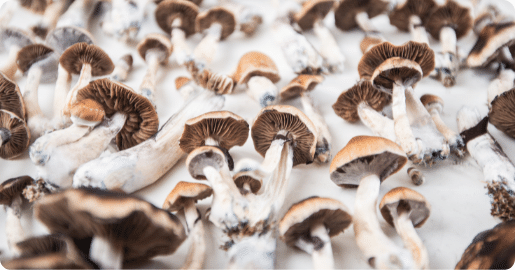
What Do the New Oregon Psilocybin Rules Include?
The rules span a variety of manufacturing, training, and product requirements and include numerous details on each.
The OHA received approximately 200 written and verbal comments from the public starting in April of 2022. The public was asked to attend virtual hearings, or submit comments via email.
According to a letter sent on April 1st which requested public comment,
"The rules are needed to implement ORS chapter 475A, the Oregon Psilocybin Services Act. The products rules set forth standards for the types of psilocybin products that may be sold and how psilocybin products must be produced. The products rules protect the health and safety of workers who manufacture psilocybin products and clients who consume these products. The act requires Oregon Health Authority to approve training program curriculum for psilocybin facilitators."
The rules include details for two sections. Use the links to jump to the section that's most interesting to you!
The letter also welcomed comments on safety and quality in psilocybin products.
Oregon Rules for Psilocybin Products and Manufacturing
1. Definitions
The definitions section outlines core terms and definitions including definitions for batch, capsule, edible psilocybin product, extraction, fruiting bodies, mycelium, psilocybin extract, and more.
The definitions section also includes substrate growing materials, product and manufacturing terms, and more.
2. Details on Psilocybin Production
New rules on psilocybin production prohibit the use of manure in cultivation or production of psychedelic products.
The rules also prohibit wood chips as a growing medium, using genetically modified organisms (like bacteria), and using chemical synthesis to produce psilocybin.
3. General Manufacturer Requirements and Endorsements
This section encompasses requirements for manufacturers of psilocybin products. It includes rules which require that manufacturers:
- Use food-grade materials and equipment
- Regulate sanitary mesures and cross-contamination
- Store psilocybin materials and products in a locked area
- Develop a tracking system which assigns each harvest and process lot a unique ID number
- Prevent the sale and marketing of psilocybin products to children through various measures.
The endorsement section outlines the rules which require manufacturers to receive official endorsement for each product type from the OHA. Endorsement types required include everything from fungi cultivation, psilocybin extraction, and psilocybin production.
It also outlines the rules for applying and submitting for endorsement.
Pesticides are also prohibited from use on both the fungi itself and the growing medium.
4. Adulterants
According to the definitions section, "Adulterant" means chemicals, drugs, plants or substances that alter the potency, intoxicating effect, duration of effect, toxicity or potential for excessive use when added to psilocybin products. Adulterant does not include naturally occurring substances contained in food items such as, but not limited to chocolate.
Basically, this section outlines that nothing can be added or changed about the psychedelic compounds to make them more potent or alter their effectiveness in any way.
In the adulterants section, rules are set forth to explicitly prohibit the use, storage, transfer of products.
And any psilocybin products intended for research and development only must be labeled as such as "NOT FOR CONSUMPTION" in 12-point font or higher and is prohibited from consumption.
5. Psilocybin Extract Manufacturing and Safety
These sections detail the materials, processes, and safety measures for generating psilocybin extract. It includes details like:
- Only using water, vegetable glycerin, acetic acid, ethanol, and methanol as solvents in extraction and prohibits all other solvents.
- Rules for temperature, pressure, alcohol requirements, and more
The safety measures section outlines rules for ventilation, potable water requirements, eye-wash stations, and the development and implementation of safety training programs.
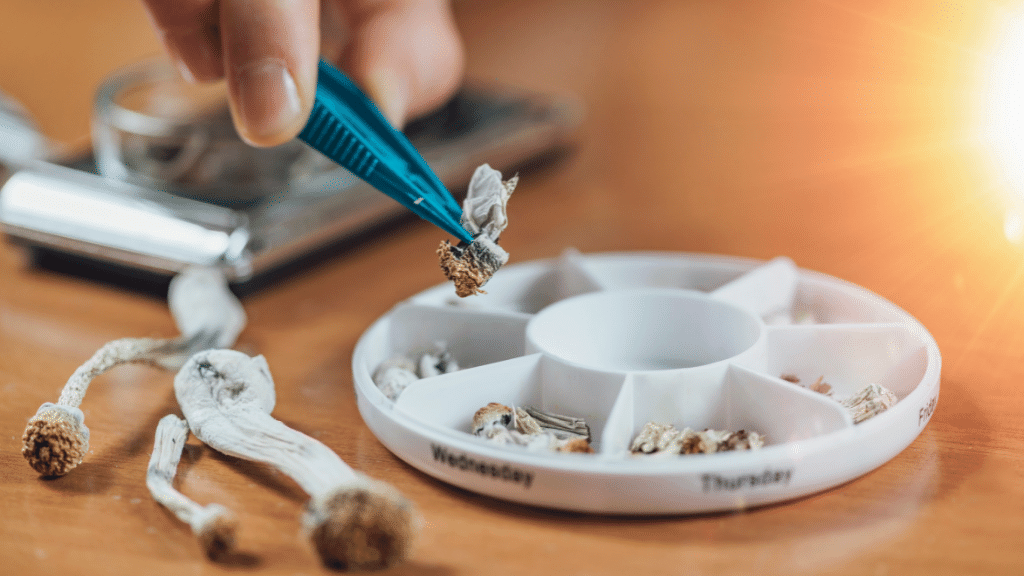
6. Edible Manufacturing Requirements & Records
This section explicitly states that any edible psilocybin production (including manufacturers of extracts for food additives above)must be licensed by the Oregon Department of Agriculture as a food establishments and must comply with the applicable provisions of OAR chapter 603, division 21, division 24, division 25 and division 28.
It also states that all edible psilocybin products must be processed AND cultivated in a food establishment licensed by the ODA.
The records section outlines rules and regulations for the creation of policies and procedures which includes ingredients, disposal, safety checks, cleaning, preventing pathogens and toxins, equipment, and more.
7. Allowable Psilocybin Product Types
This section details the types of psilocybin products that are explicitly allowed including:
- Whole fungi, mycelium, and homogenized fungi
- Psilocybin extract
- Edible psilocybin products
And requires that each have the appropriate endorsement and licensure for each.
8. Psilocybin Delivery Methods
This section requires all psilocybin products to be designed to be consumed orally or via another enteral method.
Enteral means involving a passage through the intestine.
All other methods of delivery are prohibited at this time including inhalers, patches, nasal spays, suppositories and any injections.
9. Psilocybin Product Testing
This section sets out standardized rules and regulations for product testing and ordering tests. Tests include:
- Speciation Testing: Tests that the lot ONLY contains psilocybe cubensis
- Potency Testing: Determines the concentration and potency of psilocybin and psilocin in the product
- Solvent Testing: Tests that the product only uses the approved solvents listed above
- Pesticide Testing: Tests for the use of pesticides, which are forbidden
- Contaminant Testing: Looks for contaminants in the product including E. Coli and more
- Heavy Metals Testing: Looks for the presence of heavy metals in the product
Details are also laid out for pre-testing (including labeling requirements) and what happens if the product fails testing analysis. These rules specify that the product may be re-analyzed by the same company but cannot be subcontracted to another company. Failed products must be destroyed. And the section further outlines rules for failed products and further measures to take based on the test that failed.
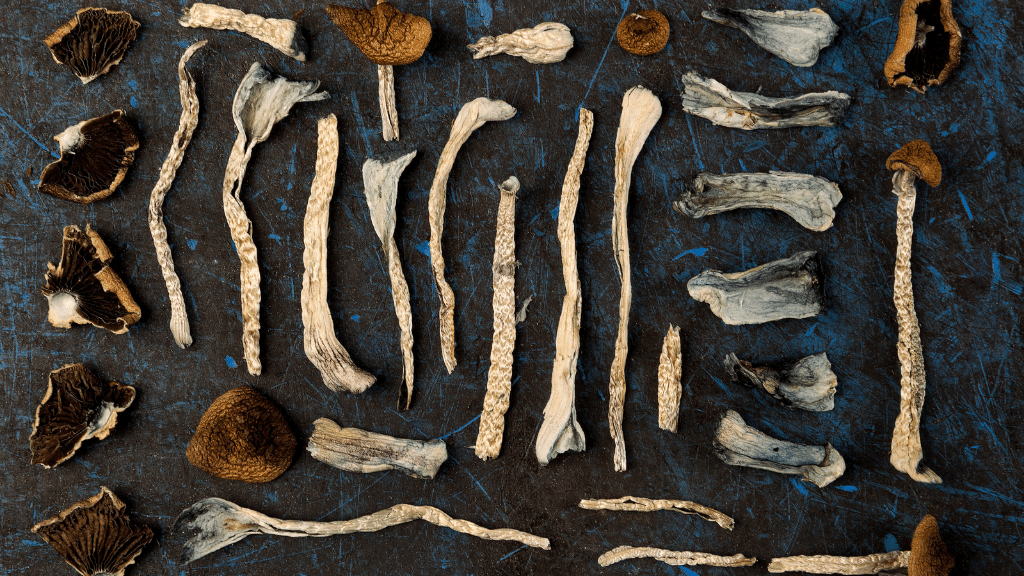
10. Batch and Product Sample Requirements
This section details that manufacturers must separate product batches into no larger than one kilogram. It also details the requirements for recording and tracking batches as well as generating testing and batch numbers.
The product sampling section details the sampling requirements for each product type including dried fungi product and extracts.
Oregon Rules for Psilocybin Training for Therapy
The rules also include several requirements, rules, and standard practices for those wishing to work with clients using psilocybin or psilocybin therapies.
Learn more about what psilocybin therapy is in our complete guide.
However, the training program appears to not be limited to just psilocybin therapy. It's likely that the training program could be applied to other public health initiatives and programs as well.
On May 25, 2022, The Oregon Psilocybin Advisory Board’s (OPAB) licensing and equity subcommittees voted in favor of proposals that would subject “entheogenic” practitioners to a lessor standard of licensure or regulation by the Oregon Health Authority (OHA). An entheogenic practitioner is someone who uses psilocybin for religious, spiritual or ritualistic purposes. Learn more about this legal memorandum for these practices here.
Let's review the rules for all other types of practitioners here:
1. Psilocybin Training Definitions
The definitions section provides standard definitions for everything including adverse behavioral reactions, facilities, curriculum, client information form, health equity, intervention, practicum site, service center, training program applicant, and so much more.
2. Psilocybin Training Program Curriculum Approval Process
This section details the appropriate channels and steps to submit their curriculum for approval.
The application must include a description of the proposed curriculum and showcase that the applicant meats all of the requirements as outlined in OAR 333-333-3050, OAR 333-333-3060, OAR 333-333-3070 and OAR 333-333-3090. There is also a non-refundable $500 application fee.
The section also details how the approval process works, and the associated timelines.
Approved programs have a term of five years from the date of approval. And specifies that additional training may be required.
The application requirements further details the specific elements required for application. Let's review the current requirements in more detail.
- Programs need at least 120 hours of instruction
- At least 50% of the training should be conveyed online for programs that are not specifically in-person
- Specific training modules are required as well as the minimum number of hours for each.
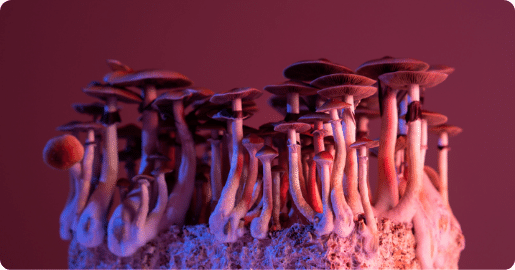
3. Psilocybin Training Curriculum Modules and Required Hours
This section details the specific training modules required. The previous section details the number of hours for each. We've combined them here:
- Historical, Traditional, and Contemporary Practices and Applications (12 hours): Includes the current and historical use of fungi in indigenous and western cultures. Also includes background on the Controlled Substances Act, historical and academic research, and more.
- Cultural Equity in Relation to Psilocybin Services (12 Hours): Includes racial justice studies, drug policy impact studies, intergenerational trauma, and the history of systemic inequity in the delivery of healthcare, mental health, and behavioral health services
- Safety, Ethics, and Law Responsibilities (12 Hours): Includes training on the Oregon Psilocybin Services Act and related laws, regulations, and standards. Also includes training in ethical issues related to psilocybin facilitation including considerations related to privilege, bias, and power, appropriate use of touch, appropriate emotional and sexual boundaries, historical and contemporary abuse of power, financial conflicts, reasonable expectations for client outcomes, appropriate mitigation measures for risk, and much more.
- Psilocybin Pharmacology, Neuroscience and Clinical Research (4 Hours): Includes drug interactions, primary effects study, models of substance use, studies, and more.
- Core Facilitation Skills (16 hours): Includes creating a space for difficult experiences, physical reactions and side effects, trauma-informed care, appropriate models of intervention, terminal illness training, and much more.
- Preparation and Orientation (16 Hours): Includes informed consent, client information, facilitator role and limits, safety concerns, boundaries, racial and cultural dynamics, and much more.
- Administration (20 Hours): Includes dosage strategies for single and multiple doses, delivery mechanisms, effective work with challenging behaviors, unexpected client disclosures, suicidality, trauma's relationship to the body, and facilitator safety protocols.
- Set and Setting: Includes environmental considerations and training. No hours were listed for this section.
- Integration (12 Hours): Includes resourcing for client safety, emotions, experiences, and more.
- Group Facilitation (16 Hours): Includes specifics on psilocybin applications in a group setting and group formatting guidelines.
4. Accelerated hours, training completion, and training exams:
This section details some exceptions for accelerated hours if the student has some professional credentialing, prior training, relevant experiences and education, etc.
It also outlines the requirements of a comprehensive skills-based exam and requires a passing score in order to complete the program.
Further licensure for Psilocybin facilitator training programs
Psilocybin facilitator training programs may be required to be licensed by the Higher Education Coordinating Commission (HECC). Under state law, career schools must be licensed by the HECC (see ORS 345.010 to 345.450). A career school is defined in state law as “any private proprietary professional, technical, home study, correspondence, business or other school instruction, organization or person that offers any instruction or training for the purpose or purported purpose of instructing, training or preparing persons for any profession,” ORS 345.010(3).
OPS recommends that psilocybin training programs review the licensure laws below related to career schools and contact the HECC if they have questions. OPS cannot make any determinations about whether HECC licensure is required, as that is a decision that the HECC must make. That said, HECC licensure is not a prerequisite to getting curriculum approval from OPS.
For more information about HECC licensure, please see contact information below:
For Private Career School License - Exemption Request & Student Complaints
Matthew Altman - Phone: (503) 881-2738
Matthew.ALTMAN@hecc.oregon.gov
For Private Career School License - New school Licensure
Peter Gertenrich - Phone: (503) 551-8236
Peter.GERTENRICH@hecc.oregon.
For Schools operating without a private career school license - Cease and Desist Letters
Monika Peterson - Phone: (503) 507-8726
Monika.PETERSON@state.or.us
Quick Links for Further Reading:
- Oregon Psilocybin Services: Oregon Psilocybin Services is a new section housed within the Oregon Health Authority Public Health Division’s Center for Health Protection. The Oregon Psilocybin Services Section will implement Ballot Measure 109, which was passed in November 2020 and directs the Oregon Health Authority to license and regulate the manufacturing, transportation, delivery, sale, and purchase of psilocybin products and the provision of psilocybin services.
- Division 333 | Psilocybin Rules: Outlines the current iteration of proposed rules for the manufacturing, transportation, delivery, sales, and purchase of psilocybin products. It includes an outline of the requirements necessary for training programs and psychedelic therapies.
- Full Meeting Calendar: See how you can get involved and follow along with all the meetings, requests for comment, and more with the official calendar.
- Sign Up for Updates From the OHA: Just FYI, it takes a few steps to submit the subscription, but you can sign up for Oregon psilocybin-specific news and announcements from this link.
- What is Psilocybin Therapy: Get our complete guide to what psilocybin therapy is and where it's available.
Want to filter through the noise? We'll do the heavy lifting for you. Follow along with us by subscribing the MorningMush - a mushroom industry newsletter that sends you all the stuff you care about (and no spam.)

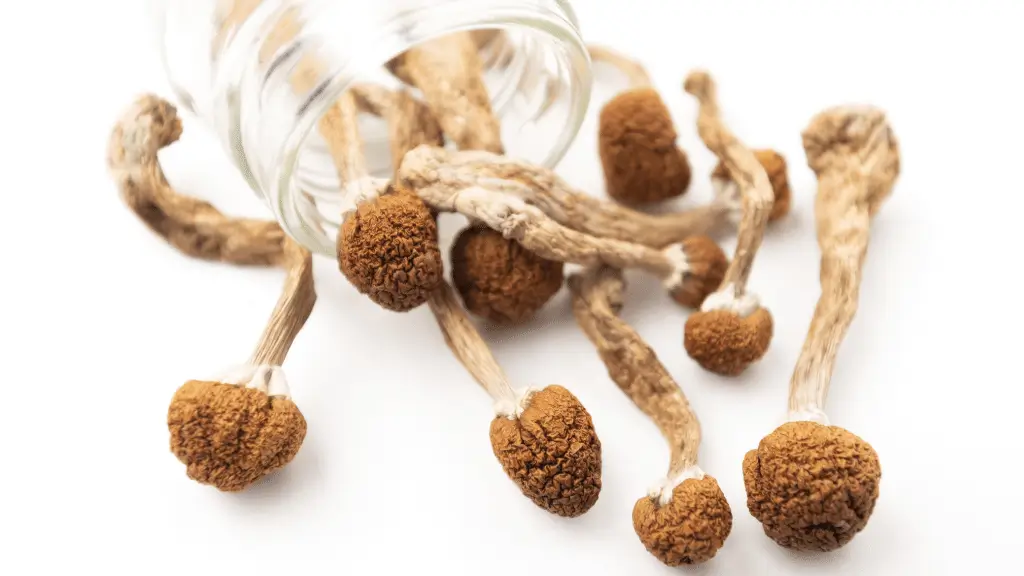



.png)
